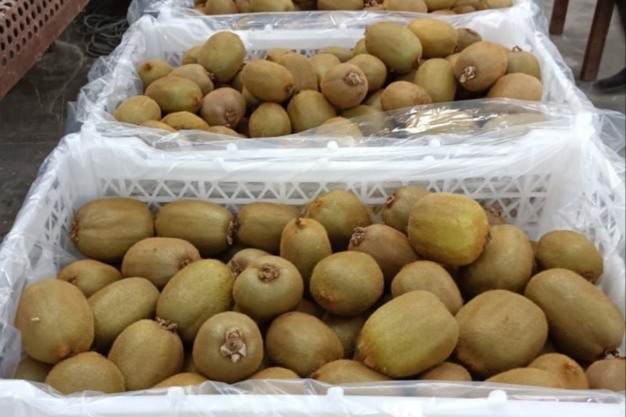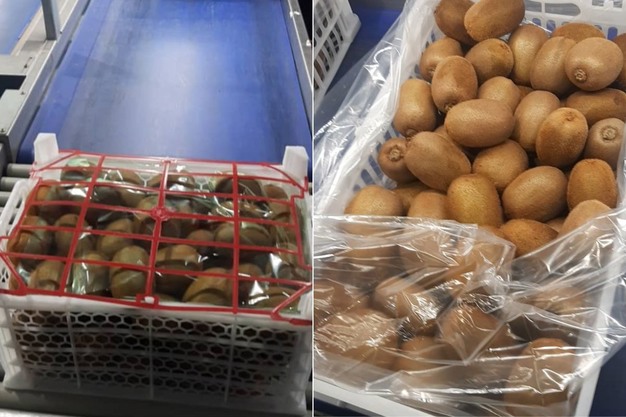The Iranian kiwifruit season has just begun. According to Amirhossein Azizi, from the exporting company Bezhit, the season looks promising, given the high global demand for kiwifruit and the commercial developments this year, notably the reopening of the Indian market.
Azizi told FreshPlaza, "Iran is the world's fourth largest producer of kiwifruit, with around 300.000 tons. We have a large domestic market for kiwis. In addition, our kiwifruit is exported to many markets at a competitive price, including CIS countries, India, Saudi Arabia, and the rest of the Arab countries of the Persian Gulf."

"This year's kiwifruit production in Iran is marked by large sizes. "We are seeing larger sizes compared to kiwifruit from Greece, which is very encouraging given the success of the Greek season this year."
On the commercial front, the season was preceded by good news for Iranian exporters. After a long period of kiwifruit from Iran being banned in India, new protocols were put in place in September allowing Iranian kiwifruit to export to India again. Azizi comments, "The number of Iranian cold packing houses allowed to export to India is now quite significant. At Behzit, we are one of the Iranian exporters licensed to export to India."
The exporter also anticipates strong demand from Greece. He says: "Due to the high demand for Greek kiwifruit, Iranian kiwifruit is exported to Greece in relatively large volumes, to be then re-exported to European markets."
According to the exporter, the logistics factor will be key to the success of the Iranian kiwifruit season, alongside the increase in global demand. Azizi explains: "Handling and storage conditions make all the difference. We take great care to ensure that the fruit is not infected by fungi and other micro-organisms, so we put a lot of care into disinfecting the fruit before storage. The environment used for packaging, while having the necessary openings for the air from the cold room to reach the fruit, must be sufficiently strong and free from sharp protrusions that could damage the fruit".

"We do our best to control fruit weight loss due to post-harvest water loss," Aziziz continues. "Although the amount of moisture loss is affected by ambient air temperature, fruit tissue temperature, and air circulation speed in terms of time, the main factor in weight loss after the fruit has been cooled and stored at zero degrees Celsius is the relative humidity of the air around the fruit. Weight loss in kiwifruit may be accompanied by a slight reduction in tissue firmness. For best results, we recommend the use of plastic boxes with a maximum height of 30 cm for packing kiwifruit in cold storage. At Bezhit, we benefit from efficient logistical operations to control the preservation of high quality throughout the season. We also have the capacity to sort and pack kiwifruit in different sizes for all market needs and specifications".
Amirhossein Azizi
Bezhit
Tel: +98 911 159 6013
Email: info@bezhit.com
www.bezhit.com
